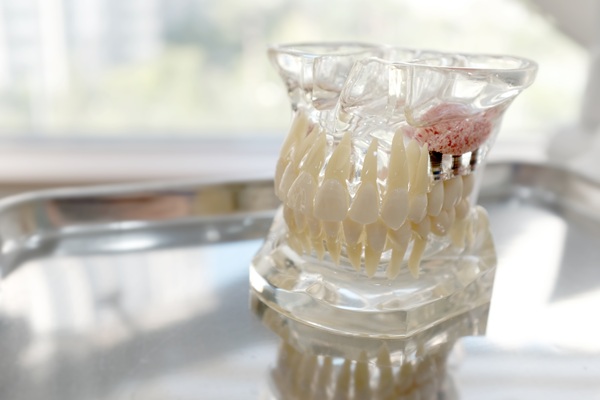When Bone Grafting is Needed for Dental Implants

If your jawbone structure is not robust enough to support dental implants, you may require bone grafting. It's important to understand what bone grafting is and how it is an important part of having dental implants. Let's take a closer look at bone grafting and when you may need them for dental implants.
When patients need dental implants
There are multiple reasons why patients may be missing teeth. Excessive tooth decay, gum disease, or shattered teeth can cause damage that can only be remedied by the actual removal of the affected tooth. Advanced oral health issues like periodontitis can also cause tooth loss.
For patients who are missing teeth or need to have some extracted, they may be able to replace them with dental implants. These are artificial tooth roots that will be screwed into the jawbone to replace the missing teeth. The dentist can then attach a dental restoration onto the implants, such as crowns or dentures.
Some patients choose to get dental implants for cosmetic and self-confidence issues, particularly if they are missing multiple teeth. However, dental implants can also raise the quality of their life, allowing them to chew, eat, and other everyday functions. Additionally, dental implants can prevent bone tissue loss, as the artificial posts stimulate the jawbone similarly to natural tooth roots.
An overview of bone grafting
In some cases, people may have an insufficient amount of bone density to support the implants. This is more often the case when teeth have been missing for a long time. To fix this, dentists can add bone to your jawbone through a procedure called bone grafting. There are a couple of specific kinds of bone grafting, including:
- Socket preservation: This procedure is done immediately after the dentist removes the tooth to prevent additional bone loss.
- Sinus augmentation: The dentist adds bone tissue to the patient's upper jaw to strengthen it for future implant placement.
Regardless of the kind of bone grafting material, it will take many months for the bones to fuse with the patient's jawbone to provide the necessary support for dental implants.
What to expect from bone grafting
To determine whether bone grafting is the best option for the patient, the dentist will take 3D images of the mouth and examine the bone structure. If the existing structure is insufficient for implants, the additional bone must be added through a grafting procedure.
The surgery itself is a low-risk procedure. The dentist will cut into the patient's gums and cut a hole in the jawbone. They will then fill the space with the bone graft and seal the incision. In cases where the patient uses bone tissue from a different part of their body, the dentist will need to harvest a small piece from a predetermined area, such as the chin or hip.
Risks and side effects of bone grafting include infection, excessive bleeding, nerve damage, and unsuccessful grafts. However, it is important to note that these are uncommon outcomes, and the procedure itself is relatively safe.
Recovering from bone grafting
Depending on the size of the bone graft, it can take about a week for the patient to initially recover. However, it is important to remember that it takes at least three months for the bone graft to fully integrate with the jawbone. For larger bone grafts, it can take an average of nine to 12 months to fully heal.
Ask your dentist about bone grafting
Bone grafting can be a complex dental treatment. Reach out to our team to learn more about whether bone grafting is a solution for you and what you can expect throughout the process. Call us at our Lithia Springs office to schedule an appointment.
Request an appointment here: https://www.claudedaniel.net or call Claude P. Daniel, DDS at (770) 983-6797 for an appointment in our Lithia Springs office.
Check out what others are saying about our dental services on Yelp: Will I Need a Bone Graft for Dental Implants in Lithia Springs, GA.
Related Posts
A full mouth reconstruction is a set of dental procedures designed to address multiple oral health and cosmetic concerns. One major component of many full mouth reconstructions is teeth replacement. This review offers insights into why and when dentists recommend dentures as a part of full mouth reconstruction. Dentures offer many advantages that other teeth replacement…
Even if we do not like it, there is a reason our general dentist recommends routine visits at least every six months. In fact, there are several important reasons why we should get into the habit of going to the dentist for regular visits as often as is necessary or as is told. The visits…
Finding the right dentist for your oral health needs can be difficult. Many questions may come to mind, such as whether a general dentist or a family dentist is the right choice. In this blog, we will discuss the differences between general and family dentists, helping to give you a better understanding of when to…
Most general dentists agree that having a broken tooth is more serious than it gets credit for. It is easy to overlook damage, especially if no pain is associated with it or the damage is not visible. However, leaving a damaged tooth untreated can result in serious consequences. This article will discuss four ways our…
